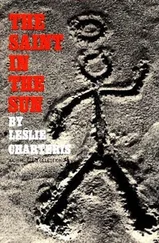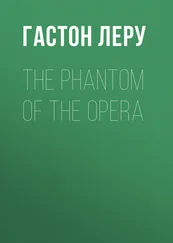Гастон Леру - The Bride of the Sun
Здесь есть возможность читать онлайн «Гастон Леру - The Bride of the Sun» — ознакомительный отрывок электронной книги совершенно бесплатно, а после прочтения отрывка купить полную версию. В некоторых случаях можно слушать аудио, скачать через торрент в формате fb2 и присутствует краткое содержание. Жанр: literature_20, Классический детектив, foreign_detective, на английском языке. Описание произведения, (предисловие) а так же отзывы посетителей доступны на портале библиотеки ЛибКат.
- Название:The Bride of the Sun
- Автор:
- Жанр:
- Год:неизвестен
- ISBN:нет данных
- Рейтинг книги:3 / 5. Голосов: 1
-
Избранное:Добавить в избранное
- Отзывы:
-
Ваша оценка:
- 60
- 1
- 2
- 3
- 4
- 5
The Bride of the Sun: краткое содержание, описание и аннотация
Предлагаем к чтению аннотацию, описание, краткое содержание или предисловие (зависит от того, что написал сам автор книги «The Bride of the Sun»). Если вы не нашли необходимую информацию о книге — напишите в комментариях, мы постараемся отыскать её.
The Bride of the Sun — читать онлайн ознакомительный отрывок
Ниже представлен текст книги, разбитый по страницам. Система сохранения места последней прочитанной страницы, позволяет с удобством читать онлайн бесплатно книгу «The Bride of the Sun», без необходимости каждый раз заново искать на чём Вы остановились. Поставьте закладку, и сможете в любой момент перейти на страницу, на которой закончили чтение.
Интервал:
Закладка:
The car turned at the corner of the cathedral, and entered a rather narrow street. Seeing the way clear, Maria-Teresa put on speed only to pull up sharply a second later, just in time to avoid running down a man wrapped in a poncho, who stood motionless in the middle of the street. Both young people recognized him.
“Huascar!” exclaimed Maria-Teresa.
“Huascar, señorita, who begs you to take another road.”
“The road is free to all, Huascar. Stand aside.”
“Huascar has nothing more to say to the señorita. To pass, she must pass over Huascar.”
Dick half rose in his seat, as if to intervene, but Maria-Teresa put a hand on his sleeve.
“You behave very strangely, Huascar,” she said. “Why are there no Indians in the town to-day?”
“Huascar’s brethren do as they please, they are free men.”
She shrugged her shoulders, thought a moment, and began to turn the car round.
Before starting again, however, she spoke to the Indian, who had not moved.
“Are you always my friend, Huascar?”
For an answer, the Indian slowly raised his sombrero, and looked up to the early stars, as if calling them to witness. With a brief “Adios!” Maria-Teresa drove on.
When the motor stopped again, it was before a big house, the door-keeper of which rushed out to help his young mistress to alight. He was forestalled, however, by the Marquis de la Torre himself, who had just driven up, and who greeted the two Montgomerys with delight. “Enter, señor. This house is yours,” he said grandly to Uncle Francis.
The Marquis was a slim little gentleman of excessive smartness, dressed almost like a young man. When he moved and he was hardly ever still, he seemed to radiate brilliancy: from his eyes, his clothes, his jewels. But for all that, he was never undignified, and kept his grand manner without losing his vivacity in circumstances when others would have had to arm themselves with severity. Outside his club and the study of geographical questions he cared for nothing so much as romping with his son Christobal, a sturdy youngster of seven. At times one might have taken them for playmates on a holiday from the same school, filling the house with their noise, while little Isabella, who was nearly six, and loved ceremony, scolded them pompously, after the manner of an Infanta.
III
The Marquis de la Torre’s residence was half modern, half historical, with here and there quaint old-fashioned rooms and corners. Don Christobal was something of a collector, and had adorned his home with ancient paneling, carved galleries several centuries old, rude furniture dating back to before the conquest, faded tapestry—all so many relics of the various towns of old Peru which his ancestors had first sacked and then peopled. And each object recalled some anecdote or Story which the host detailed at length to all willing listeners.
It was in one of these historical corners that Mr. Montgomery and his nephew were presented to two old ladies—two Velasquez canvases brought to life, yet striving to retain all their pictorial dignity. Attired after a fashion long since forgotten, Aunt Agnes and her duenna might almost have been taken for antiques of Don Christobal’s collection: they lived altogether in another age, and their happiest moments were those passed in telling fear-inspiring legends. All the tales of old Peru had a home in this ancient room of theirs, and many an evening had been whiled away there by these narratives—the two Christobals, father and son, and little Infanta Isabella listening in one corner, while Maria-Teresa, at the other end of the room, went over her accounts and wrote her letters in a great splash of yellow lamplight.
Uncle Francis was delighted to meet in real life two such perfect types of the New Spain of yore, set in the very frame they needed. They were great friends at once, and the savant, taken to his own room, changed his clothes hurriedly to be able to rejoin them. At dinner, installed between the two, he begged for more legends, more stories. Maria-Teresa, thinking it time to talk of more serious matters, interrupted by telling her father of the trouble between the Indians and coolies.
When they heard that Maria-Teresa had discharged the Indians, Aunt Agnes shook her head doubtfully, and Irene openly expressed her disapproval. Both agreed that the young girl had acted imprudently, and particularly so on the eve of the Interaymi festival. This view was also taken by the Marquis, whose protest took an even more active form when he learned that Huascar had also left. Huascar had always been a very faithful servant, he argued, and his brusk departure was strange. Maria-Teresa explained shortly that for some time past Huascar’s manner had displeased her, and that she had let him know it.
“That is another matter,” said the Marquis.
“But I am no more comfortable about it… there is something in the air… the Indians are not behaving normally.... The other day, in the Plaza Mayor, I heard extraordinary remarks being made by some half-breeds to a couple of Quichua chiefs.”
“Yes, we did not meet a single Indian on the way from Callao, and I have not seen one in the city,” said Dick. “Why is that, I wonder?”
“Because of the festival,” interjected Aunt Agnes. “They have their secret meetings. They disappear into the mountains, or some warren of theirs—catacombs like the Early Christians. One day, the order comes from some corner of the Andes, and they vanish like shadows, to reappear a few days later like a swarm of locusts.”
“My sister exaggerates a little,” said the Marquis, smiling. “They are not so very dangerous, after all.”
“But you yourself are worried, Christobal. You have just said so.”
“Only because there might be some rioting....”
“Have they got it in them?” asked Mr. Montgomery. “They seem so nerveless....”
“They are not all like that.... Yes, we have had one or two native rebellions, but it was never anything very serious.”
“How many of them are there in the country?” put in Dick.
“About two-thirds of the population,” answered Maria-Teresa. “But they are no more capable of really rebelling than they are of working properly. It is the Garcia business that has unsettled them, coming after a long period of quiet.” She turned to her father. “What does the President think of it all?”
“He does not seem to worry a great deal. This Indian unrest recurs every ten years.”
“Why every ten years?” demanded Uncle Francis.
“Because of the Sun Festival,” said old Irene. “The Quichuas hold it every ten years.”
“Where?” Dick took a sudden interest. “Nobody knows,” replied Aunt Agnes, in a nervously strangled voice. “There are sacrifices… and the ashes of the victims are thrown into rivers and streams… to carry away the sins of the nation, the Indians believe.”
“That is really very interesting!” exclaimed Uncle Francis.
“Some of the sacrifices are human,” half groaned the old lady, dropping her head to her plate.
“Human sacrifices!”
“Oh, Auntie!” laughed Maria-Teresa.
“Curious,” remarked the savant. “And there may be some truth in it. I know that they were customary at the Festival of the Sun among the Incas. And Prescott makes it clear that the Quichuas have kept not only the language of their ancestors, but also many of the ancient customs.”
“Yes, but they became Christians when the Spaniards conquered their country,” suggested Dick.
“Not that that affects them much,” commented the Marquis. “It gives them two religions instead of one, and they have mixed up the rites and beliefs of the two in a most amazing fashion.”
“What do they want to do, then? Re-build the Empire of the Incas?”
Читать дальшеИнтервал:
Закладка:
Похожие книги на «The Bride of the Sun»
Представляем Вашему вниманию похожие книги на «The Bride of the Sun» списком для выбора. Мы отобрали схожую по названию и смыслу литературу в надежде предоставить читателям больше вариантов отыскать новые, интересные, ещё непрочитанные произведения.
Обсуждение, отзывы о книге «The Bride of the Sun» и просто собственные мнения читателей. Оставьте ваши комментарии, напишите, что Вы думаете о произведении, его смысле или главных героях. Укажите что конкретно понравилось, а что нет, и почему Вы так считаете.












